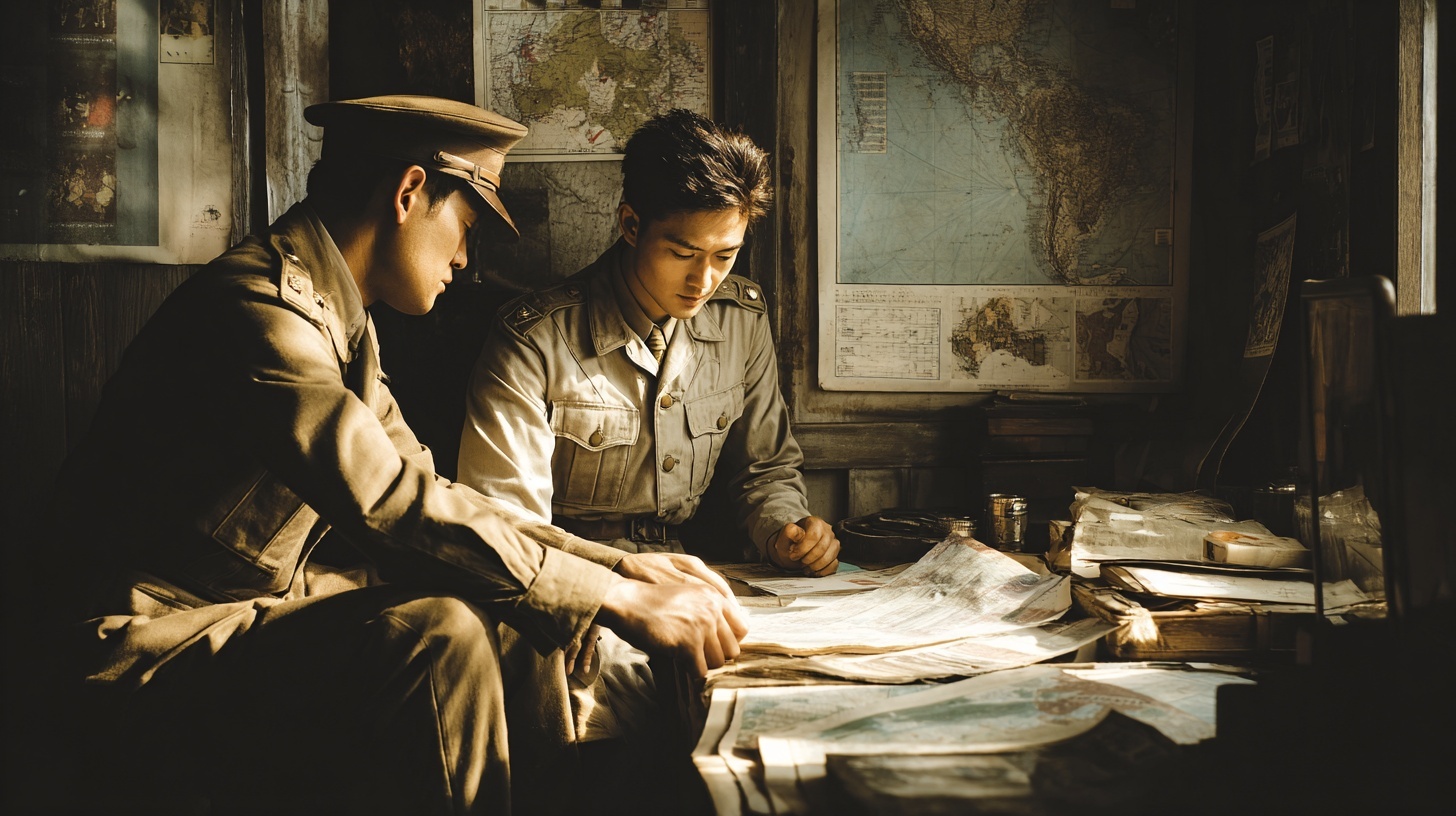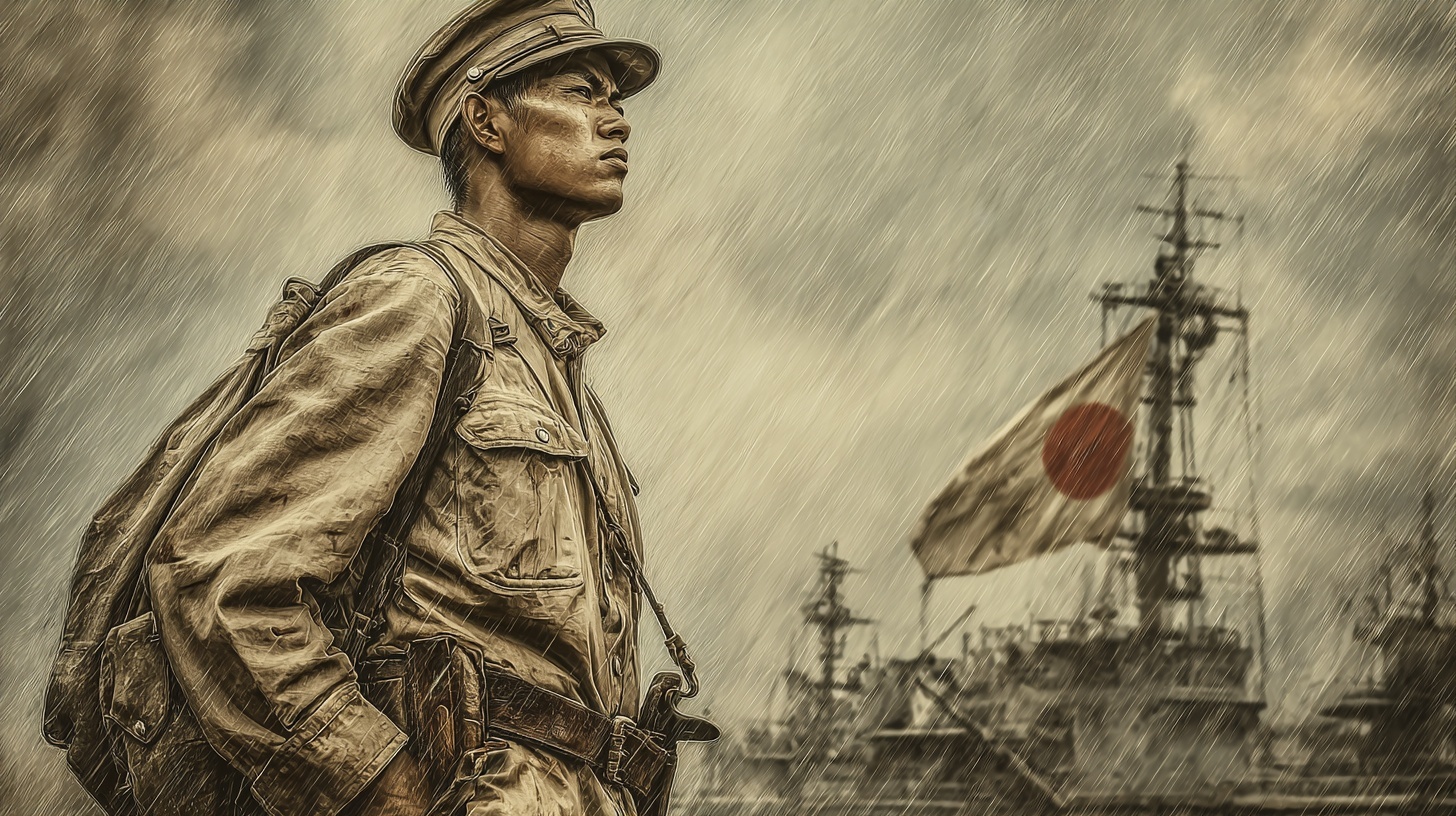Nearly eighty years have passed since Japan’s defeat in World War II. Those who directly experienced the war have all but vanished. My grandfather served as a member of the Imperial Guard of the Empire of Japan, a young soldier inspired by the ideal of the Greater East Asia Co-Prosperity Sphere. He led multiple desperate bayonet charges against British forces when ammunition ran out. But despite his courage, he and his comrades were thoroughly defeated by the Allied powers.
As a prisoner of war, my grandfather had the rare opportunity to learn directly from his former enemies. Reflecting on that experience, he would later say: “We had already lost in the scale and depth of our structure.”
This was not merely about weapons or manpower. It was a recognition that Japan had been outmatched in the very systems and frameworks that sustained the war effort. Today, as those who knew this truth first-hand fade from memory, we risk repeating the same mistakes.
1. Youth in the Imperial Guard
My grandfather was a soldier in the Imperial Guard—an elite unit tasked with protecting the Emperor and serving as the ceremonial face of the Imperial Army. Chosen from among the best, Imperial Guards were known for their strict discipline, impeccable uniforms, and the pride they took in their appearance. In those days, the khaki military uniform was considered modern and fashionable, representing the latest in military design.
He deeply believed in the mission of liberating Asia from Western colonial rule. This was before Japan’s war effort became total and desperate—a time when many young men still saw military service as a path of honor.
2. Total Defeat
But idealism and determination were powerless against superior structure. The United States and Britain not only outproduced Japan in weapons and supplies—they fought the war as an integrated system from the ground up.
Logistics networks, supply chains, communications systems, and the standardized coordination of resources across multiple allied nations created a seamless war machine. Japan, by contrast, was fragmented: different branches of the military operated on separate standards, supply was inconsistent, and inter-service cooperation was limited. As my grandfather put it: “We fought well on the ground, but the very structure we fought within was never designed to win.”
3. Lessons in Captivity
After the war, my grandfather was taken prisoner. In captivity, he spoke with Allied officers and learned about the systems that had underpinned their victory. It wasn’t simply better weaponry or individual soldier performance—it was the speed of research and development, the efficiency of mass production, and above all, the power of standardized, interoperable systems.
Hearing this, he realized with conviction: “We never had a chance. The scale and depth of their structure made all the difference.”
Because of this, he never indulged in shallow postwar nationalism. He had seen the true reasons for Japan’s defeat and understood they were structural, not sentimental.
4. Reconstruction and the Generational Gap
Postwar Japan rebuilt itself by learning from these hard truths. Industries that embraced global standards and interoperability—like Toyota and Sony—thrived in the global market. This was the direct result of applying lessons from defeat.
But as my grandfather’s generation passed away, the humility born from direct experience faded. “Japan-is-great” narratives resurfaced, while awareness of structural weaknesses receded. Once again, we began to see world-class technology—like Japanese feature phones or the Walkman—fall behind because they could not adapt to global standards.
5. Are We Repeating History?
If my grandfather were alive today, I suspect he would say, “We are walking the same path again.” Overvaluing uniqueness while undervaluing compatibility is the same mistake that once led to disaster. Compatibility is not about abandoning one’s culture; it is about designing with an understanding of how one fits into the wider world—a precondition for survival.
6. A Question for Us
I do not share my grandfather’s story simply as a wartime memory, but as a record of structural defeat. For me, communicating in English is one way to maintain compatibility with the world. Without it, isolation and decline will inevitably follow.
His generation faced reality without illusion. The question is: are we willing to do the same? With history on the verge of repeating itself, now is the time to ask.

